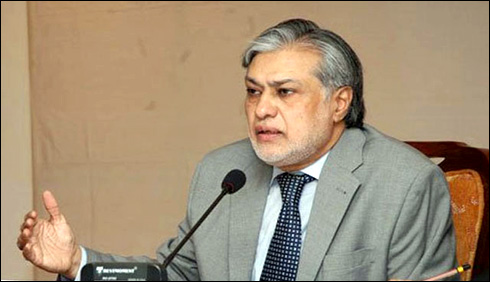Deputy Prime Minister and Minister of Foreign Affairs Senator Ishaq Dar underscored the importance of revising the National Finance Commission (NFC) Award and phasing out federal bodies that conflict with the devolution spirit.
Addressing the final session of the 38th Annual General Meeting and Conference of the Pakistan Society of Development Economists (PSDE), Dar emphasized that the 18th constitutional amendment had given provinces greater autonomy, and it was time for them to take full responsibility in areas such as health, education, policing, and social welfare.
Dar pointed out that the strengthening of federating units was essential for a strong federation. He stressed that Pakistan’s provinces were rich in natural resources and had unique strengths, which, if optimally utilised, could significantly contribute to the country’s development. He called for a focus on continuity in policies and political stability to facilitate growth.
The conference, organised by the Pakistan Institute of Development Economics (PIDE), was attended by representatives from the Ministry of Planning, Development and Special Initiatives, the Asian Development Bank (ADB), Pakistan Poverty Alleviation Fund (PPAF), Research for Social Transformation and Advancement (RASTA), CPEC Centre of Excellence, and the Bank of Punjab.
Dar also highlighted the need for provinces to lead innovation, particularly in the digital space, citing examples of digital agriculture in Khyber Pakhtunkhwa, education reforms in Gilgit-Baltistan, and climate resilience efforts in Sindh. He called for a greater emphasis on digitization, smart schools, and e-governance as tools for national development.
During his address, Dar reiterated the urgency of revising the NFC Award to enhance provincial autonomy and ease the fiscal pressure on the federal government. He called for a collaborative approach in addressing challenges, stating, “When Pakistan takes flight, every province must lift.”
The conference also featured a presentation by Minister for Planning, Development, and Special Initiatives Ahsan Iqbal, who urged the synthesis of research into actionable policies. Iqbal emphasized the need for provincial governments to play a more active role in socio-economic development and highlighted the importance of bridging the gap between “knowing and doing.”
The prestigious Mahbubul Haq Memorial Lecture was delivered by Mohammad J Sear, EY MENA’s Digital Government and Public Sector Leader. Sear discussed the evolving definition of sovereignty in the digital age, stressing the need for Pakistan to invest in sovereign digital ecosystems and AI development to protect its autonomy.
The conference also featured discussions on CPEC 2.0, digital transformation, and e-governance, with experts highlighting the shift from infrastructure-based growth to knowledge-based innovation. The need for regional policies to promote digital inclusion in underdeveloped regions like South Punjab was also emphasized.
Despite facing challenges, there was a growing consensus on the importance of embracing technology as a key driver of growth, inclusion, and resilience across Pakistan.




